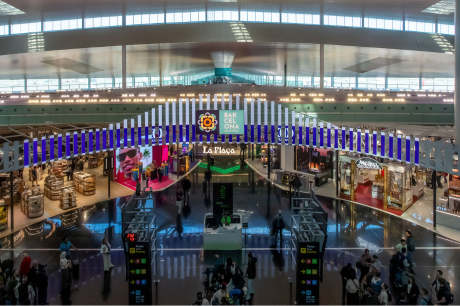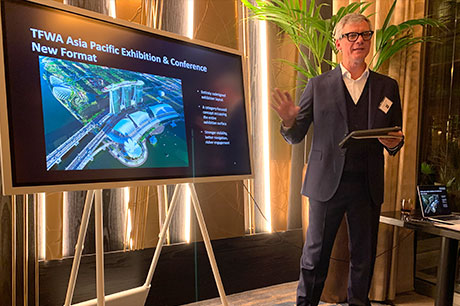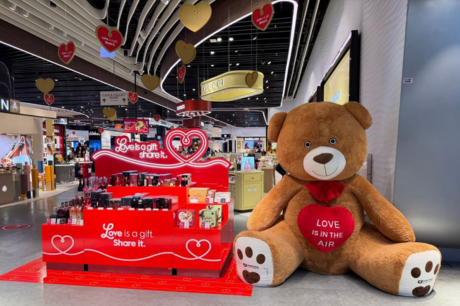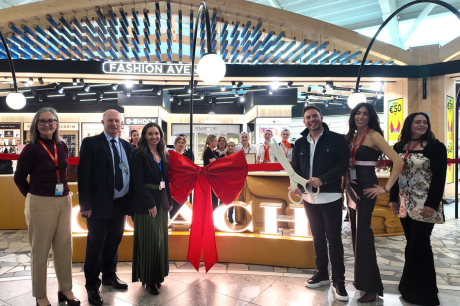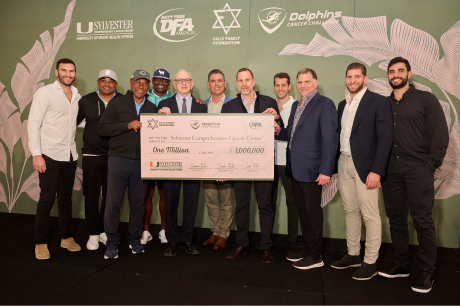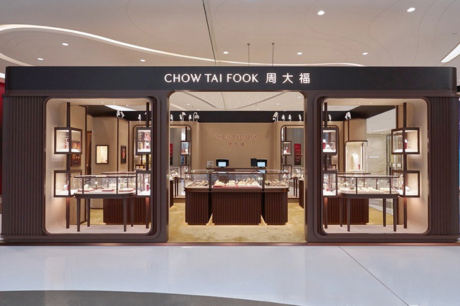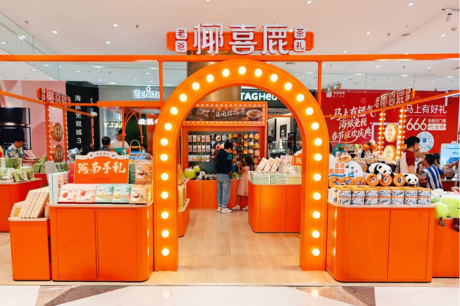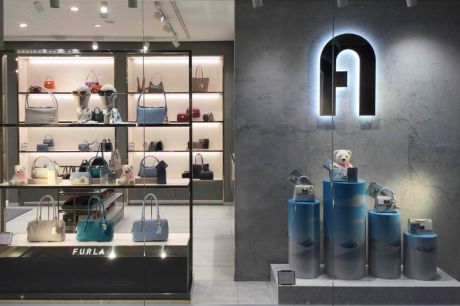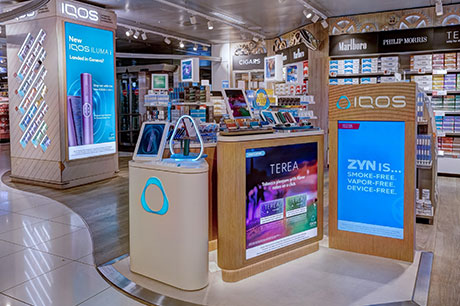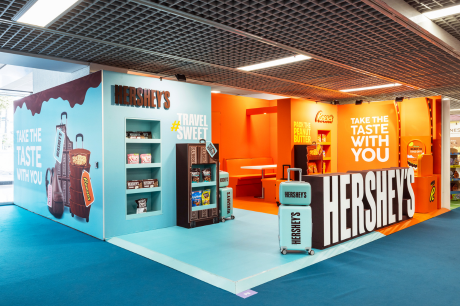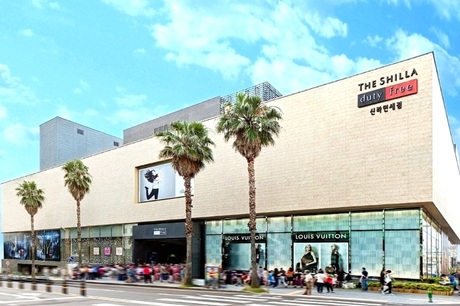TRSW24 panel: Partnership and communication key to ESG
By Benedict Evans |

Panellists and co-moderators during the second panel session from Day 1 of TR Sustainability Week 2024.
The second panel session from the first day of TR Sustainability Week 2024 tackled greenwashing and greenhushing, with panelists Julie Lassaigne, Secretary General, ETRC, Camillo Rossotto, Chief Public Affairs & ESG Officer, Avolta AG, and Laurence Pardieu-Duthil, Chief Sustainability Officer, L’Oreal Travel Retail on hand to offer expert insight, co-moderated by Rebekah Lees, Sustainability Communications & Engagement Lead, Quantis, and Benedict Evans, Content Editor for TRBusiness.
Lees first offered an overview of the pertinence of understanding and mitigating against greenwashing and greenhushing, the latter of which has arisen as a corporate counter to greenwashing, though Lees noted neither was admirable or useful in promoting a green agenda.
Lees said: “Greenhushing is essentially a reaction to increasing scrutiny whereby companies are choosing to keep quiet about their sustainability efforts and progress. Recent research has shown that this practice is also on the rise as companies are deciding to take a more guarded approach to sustainability communications.
By not communicating, you’re effectively obscuring or understating environmental efforts. Companies are therefore hindering the possibility of collective progress, and this lack of transparency really makes it difficult for stakeholders to make informed decisions, as they’re unable to accurately assess a company’s true impact on the environment.”

Lees noted the side-effect of doing so also erodes public trust in corporate sustainability commitments, and makes for increasingly sceptical consumers, discouraging within the industry active support and advocacy for genuine sustainable initiatives and products.
Lassaigne continued with a detailed breakdown of recent and ongoing efforts made by the ETRC to understand the regulatory changes being introduced by the EU vis-à-vis the Green Directive, and other similar sustainability-focused directives.
Lassaigne commented: “When it comes to sustainability as a concept, I think it’s fair to say that for a lot of us, it looks like a maze, like we’re not talking about only environmental claims, that green claims, but we are really looking to a lot of different impacts upon our industry, such as economic, social and environmental impact.”
In breaking down the maze-like series of ever-evolving regulatory challenges, Lassaigne pointed to a series of reports published by ETRC designed to collate and simplify the differing legislation(s).
“In order to try to understand what was coming on our way in terms of the legislative impacts, we decided to commission a series of reports looking exactly at trying to map and analyse the impact of EU sustainability regulation,” added Lassaigne, who continued: If we look at the Green Claims Directive in a bit more detail, this came from the EU commission because of a single, I would say, very simple, very simple analysis. They did a study a few years ago, back in 2020 where they analysed a number of products and realized that more of half of the claims were actually misleading, and 40% of the claim of green claims, which companies were making on a voluntary basis, were actually unsubstantiated.
What this directive is actually trying to do, is to clearly scope and define the concept of environmental claims and differentiate between explicit and comparative claims.”

Lassaigne added the three most important factors at play were a focus on: verifying claims based on scientific evidence and international standards, evaluation of ESG impact from a full life-cycle perspective; and a strong discouragement against the presentation of standard legal requirements as unique environmental benefits.
Lassaigne stated: “We can see serious impact directly for producers and manufacturers, because it means that they will need to look at the way they produce and market their products.
And in a sense, there is, of course, an increased risk and liability to our consumers, because they need to be sure that what they claim about their product is clearly reported and is clearly substantiated.”
Next, Rossotto and Pardieu-Duthil continued the discussion with an expansive exploration of the ESG strategies employed by Avolta and L’oreal, especially where concerning training and knowledge sharing.
“We need to look at what kind of business is more impacted. If it’s the duty free business, which has sort of a centrally run category management, definitely the knowledge needs to be where the power is normally with the category management.
Legal and compliance is part of this of course. I mean, if they’re not aware of these things, you got bigger troubles in your hand,” said Rossotto.
Pardieu-Duthil concurred, adding: “I totally agree with Julie and Camille, and visually, especially on the fact that we need to onboard everybody in the company on sustainability.
We have different types of training adapted, you know, to different functions, because it’s not the same requirements, across marketing, operations, regulatory etc…I believe coming back to the green claims, the number one population to be educated, of course, is marketing.”
“Cooperative compliance needs to be sort of the standard, because then you can take out the piece of compliance that you need to do and turn it into something that you want to do. And because when you involve that group of people, they also can see the positive aspects of doing certain things. Maybe they would have wanted to do it, but they never had the voice to do it,” noted Rossotto, who was then invited to speak on the increasing demand for transparency and greater action on sustainability from consumers.
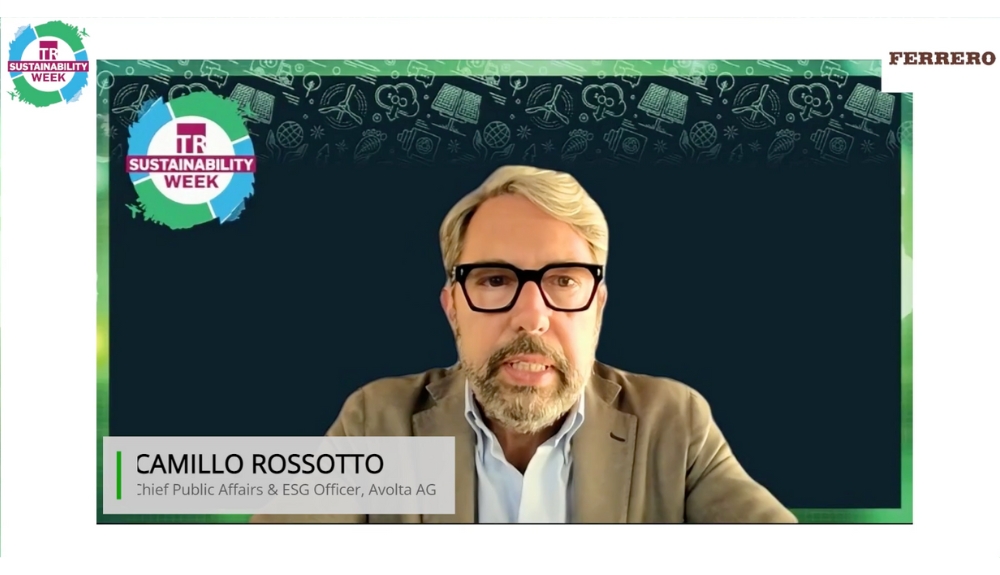
“Avolta has 5100 stores and 80% of those are in airports, so we get a pretty good pulse of what travelling consumers look for, demand to get, or don’t get. You need to focus on some of the demographics which are changing fast, that is the Gen Z type of trends that we observe across the globe,” Camillo Rossotto, Chief Public Affairs & ESG Officer, Avolta AG.
Rossotto also offered data insights from Avolta surrounding the changing demands and preferences of its Gen Z consumers: “In terms of raw data, 27% of the workforce by 2025 is going to be Gen Z, so I think for the first time for this generation, purchasing power and demographics will align, and this will become a driving force in in the travel experience. And why is that? Because by 2029, 1.2 billion of global travellers will belong to Gen Z.
More than 57% of them, based on our data, place huge importance on brands that are offering values and are offering authentic experiences of those values through the product that they offer.
They’re willing to purchase more than 82% which is a big percentage, are willing to buy local products, so that there you have the interception between the environment and social, because they’re not just interested in the environmental claims of your product or your offering, but also the social impact.”
Rossotto utilised Avolta’s cosmetics assortment, which makes up 20% of its total product offering, as an example of some of these changes taking place within the industry: “We see clearly this trend of experience being linked to well-being and the request for solutions that can change positively one’s lifestyle. They’re not so interested in the brand, the luxury type of thing to do, to show off, but they’re interested in something that really can, you know, benefit their skin, their appearances, their well-being, their mental health.”
Lees also posited the notion of a ‘common language’ for consumers, and the difficulties therein of appealing to consumers from regions with differing levels of scrutiny, asking how travel retailers can cater to the global nature of these consumers, regardless of understanding or even interest In sustainability.
“It varies, for example in F&B, food doesn’t travel, but when you gert to duty free and convenience, things change in an important way. Northern Europeans are the most scrutinous in terms of products, Latin People are more interested in the social impact, the heritage.
One thing we are trying to have is to maintain the highest standards across sustainability, for environmental and social, and develop the key characteristics of sustainability to have them perceived without having to talk extensively about it.”

The third and final presentation of the session was delivered by Pardieu-Duthil, as she detailed some of the innovative strategies L’Oreal has been embarking on in order to be transparent on its sustainability claims and engage consumers on this topic.
“We believe at L’Oreal that both performance -double performance, as we say at L’Oreal – goes hand in hand. The financial performance, top line and bottom line, of course, but the environmental and social experience.
We’ve been posting our first emissions targets from 2009 so already 15 years ago, and we have we had big transformation programmes since,” said Pardieu-Duthil, who also came prepared with a series of short videos which dug deeper into changes at the production level which form a central tenet of its ESG transformation.
“You can feel the scale of the transformation which we are leading. And it’s not only at the group level. We believe that travel leader has a very specific role to play, because, as we say, travel retail is about the best of retail. It’s about being at the forefront of retail. And we believe that travel retail is also about being at the forefront of sustainable retail,” commented Pardieu-Duthil.
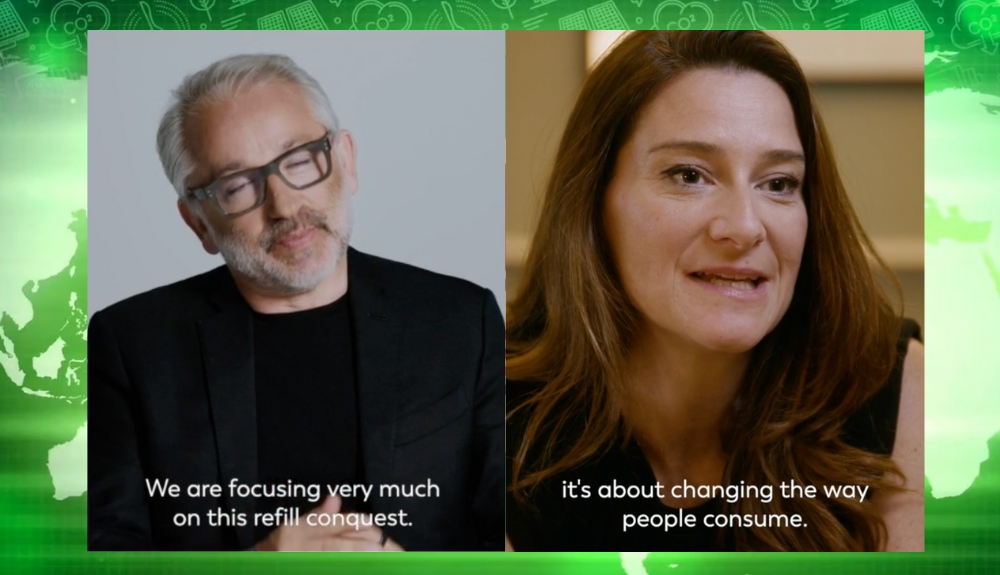
Stills from the videos shared by Laurence Pardie-Duthil emphasised the sustainable changes at the heart of L’Oreal’s production, as she emphasised the need for constant evolution on this front.
She continued: “If we look at the social demographics, we know that only 6% of the worldwide population travel, but these people are the most affluent and the most influent people in the world.
They’re looking more than the average, for sustainable offer in coping, in terms of catering, in terms of accommodation at each touch point of their travel. We believe that sustainability can really become a very real competitive advantage for travel retail, for the brands, and the retailers, to build their image in this very demanding market.”
Pardieu-Duthil pointed to programmes such as the array of airport carbon accreditation initiatives as one such possibility, as well as the need to anticipate regulation on a national and international level.
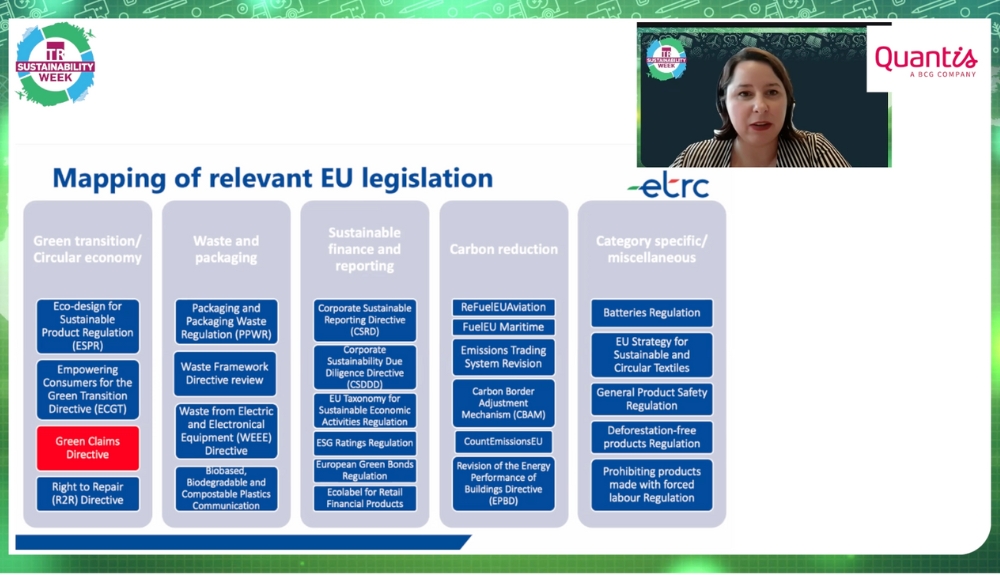
The discussion continued with a look at the impact and potential innovation in refill programmes for cosmetics products, as well as further input from Lassaigne on the extant and upcoming directives and regulations for brands and retailers where concerning differences in how regional markets handle recycling, and the effect this has on full life-cycle analyses.
One thing all panellists agreed upon was the urgent need for greater levels of partnership and open communication between actors along the value chain.
As Pardiue-Duthil noted: “There is no one big enough to do it on their own.”
You can view the session on demand by clicking the button above.
Stay close to TRBusiness for more great content throughout the week. You can check out the programme via this link.
READ MORE: NOW LIVE: TR Sustainability Week 2024
READ MORE: Revealed: TR Sustainability Week agenda & speakers
READ MORE: Pitch series returns with high-profile Guardians
READ MORE: TR Sustainability Week 2024 welcomes Silver Sponsor Kellanova GTR
READ MORE: TR Sustainability Week: Ferrero bolsters lineup as Headline Sponsor
READ MORE: TR Sustainability Week: Suntory Global Spirits joins as Headline Sponsor
READ MORE: Rémy Cointreau joins TR Sustainability Week 2024 as Silver Partner
READ MORE: TR Sustainability Week to return in December
Aena begins major food and beverage overhaul at Barcelona-El Prat Airport
Image Credit: Aena Aena has approved a full-scale renovation of the food and beverage offer...
Ritter Sport and Avolta debut Zurich-exclusive Matcha Strawberry bar
Image Credit: Avolta Ritter Sport has teamed up with Avolta to unveil a global travel...
TFWA talks APAC show evolution strategy as registration opens
Image Credit: TRBusiness Tax Free World Association (TFWA) delivered a briefing on how its...
-
 Travel Retail Sustainability Week,
Travel Retail Sustainability Week,Aena begins major food and beverage overhaul at Barcelona-El Prat Airport
-
 Travel Retail Sustainability Week,
Travel Retail Sustainability Week,Ritter Sport and Avolta debut Zurich-exclusive Matcha Strawberry bar
-
 Travel Retail Sustainability Week,
Travel Retail Sustainability Week,TFWA talks APAC show evolution strategy as registration opens

In the Magazine
TRBusiness Magazine is free to access. Read the latest issue now.

 Trbusiness. The travel retail Trbusiness. The magazine for global retail and duty free professionals.
Trbusiness. The travel retail Trbusiness. The magazine for global retail and duty free professionals.
